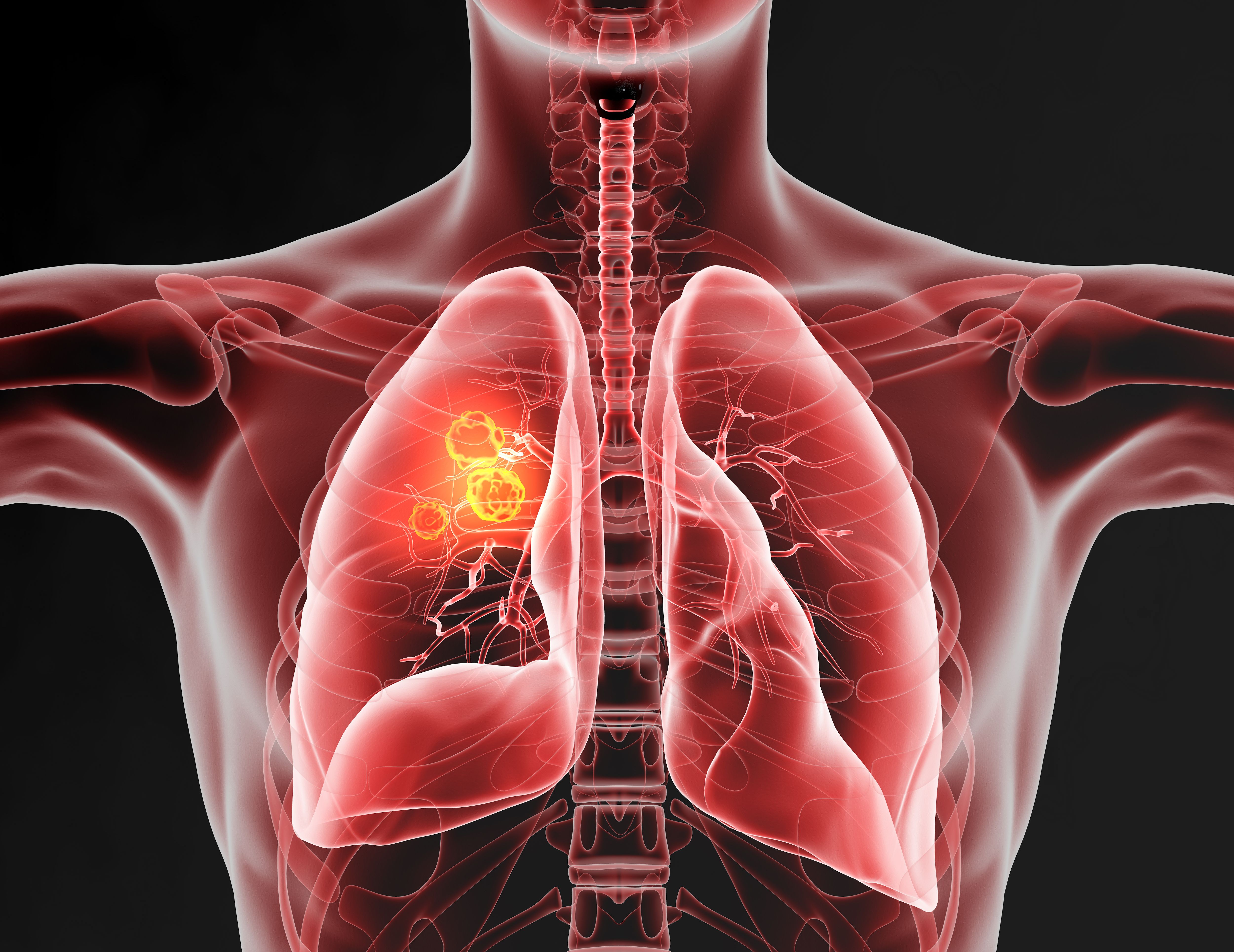Article
Confirmatory PAPILLON Study Supports Amivantamab-vmjw For Patients with Severe Lung Cancer Mutation
Author(s):
The 5-year survival rate for patients with exon 20 insertion EFGR mutation is 8% in the frontline setting, worse than the survival rate of the 2 most common types of EGFR mutations in patients with advanced or metastatic non-small cell lung cancer.
Amivantamab-vmjw (amivantamab; Rybrevant) and chemotherapy can significantly improve progression-free survival (PFS) in patients with newly diagnosed advanced or metastatic non-small cell lung cancer (NSCLC) who have an epidermal growth factor receptor (EGFR) exon 20 insertion mutation and who have experienced disease progression while on, or after, platinum-based chemotherapy, according to recent data from the confirmatory phase 3 PAPILLON (NCT04538664) study. The findings bolster the continued use of amivantamab to treat this patient population, according to the authors.
Credit: Axel Kock - stock.adobe.com

“The results from the PAPILLON study support the efficacy of [amivantamab] plus chemotherapy in the treatment of patients with non-small cell lung cancer with exon 20 insertion mutations," said Peter Lebowitz, MD, PhD, global therapeutic area head, Oncology, Janssen Research & Development, LLC, in a press release.
Amivantamab received its first FDA approval in 2021 based on successful response data. Continued approval is based on the results of confirmatory trials, such as PAPILLON.
PAPILLON is a randomized, open-label study comparing the safety and efficacy of the amivantamab combination (amivantamab and carboplatin-pemetrexed chemotherapy) to monotherapy chemotherapy. The study’s primary endpoint was PFS, with secondary endpoints of overall response rate (ORR), overall survival (OS), PFS following subsequent therapy, and time until the progression of symptoms. Patients in the chemotherapy arm could receive monotherapy amivantamab upon disease progression.
The trial met the primary endpoint of PFS, becoming the first randomized study to show clinically meaningful results for this patient population.
The safety profile was comparable to what was observed in previous clinical trials. The most common low-grade adverse events (AEs) associated with amivantamab included rash (84%), infusion-related reactions (64%), and paronychia (50%). At least 2% of participants experienced severe AEs (grades 3 and 4), including decreased lymphocytes (8%), albumin (8%), phosphate (8%), and increased alkaline phosphatase (4.8%).
NSCLC is the most common type of lung cancer, which is one of the most common cancers globally. As many as 85% of all lung cancer cases are NSCLC, with subtypes that can be broken down into adenocarcinoma, squamous cell carcinoma, and large cell carcinoma.
EGFR is a receptor tyrosine kinase that is responsible for cell growth and division. At least 15% of adenocarcinomas among Western patients are EGFR-mutated, and up to half of all Asian patients have the mutation. Exon 20 insertion is the third most common EGFR mutation, and 5-year OS is 8% in the frontline setting, which is worse than the 2 most common EGFR mutations (EGFR ex19del and EGFR L858R).
“This phase 3 study is the first of several ongoing pivotal programs to read out evaluating [amivantamab]-based regimens in patients with EGFR-mutated NSCLC…a population that continues to experience persistent unmet medical needs,” Lebowitz said in the press release.
Reference
Treatment with RYBREVANT® (amivantamab-vmjw) Plus Chemotherapy Resulted in Statistically Significant and Clinically Meaningful Improvement in Progression-Free Survival in Patients with Newly Diagnosed EGFR Exon 20 Insertion Mutation-Positive Non-Small Cell Lung Cancer. The Janssen Pharmaceutical Companies of Johnson & Johnson. July 17, 2023. Accessed on July 18, 2023. https://www.prnewswire.com/news-releases/treatment-with-rybrevant-amivantamab-vmjw-plus-chemotherapy-resulted-in-statistically-significant-and-clinically-meaningful-improvement-in-progression-free-survival-in-patients-with-newly-diagnosed-egfr-exon-20-insertion-mutati-301878443.html?tc=eml_cleartime





